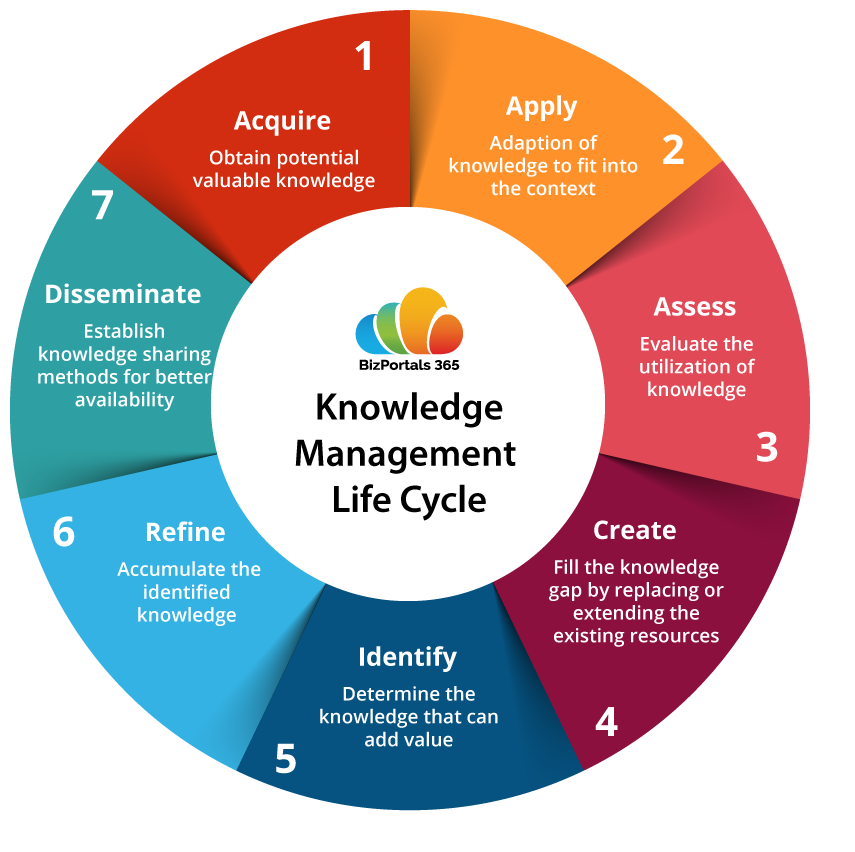Top Knowledge Resources for Businesses: Boosting Efficiency and Collaboration
In today’s fast-paced business environment, knowledge is power. Having easy access to the right information can significantly improve decision-making and operational efficiency. With the rise of digital tools and platforms, businesses now have access to various knowledge resources that help them organize, share, and leverage their internal expertise. This article explores the top knowledge resources that can enhance your organization’s productivity, communication, and collaboration.

1. Knowledge Management Systems (KMS): Organizing Information Efficiently
A Knowledge Management System (KMS) is a powerful tool for businesses to store, manage, and share knowledge. It helps teams collaborate by providing easy access to relevant information and resources. The goal of KMS is to streamline the knowledge-sharing process, ensuring that everyone in the organization has access to the latest and most accurate data.
Key Features:
-
Centralized Knowledge Repository: All documents, files, and resources are stored in one place for easy access.
-
Search Functionality: Powerful search features to quickly locate relevant content.
-
Collaboration Tools: Enable employees to share insights, feedback, and updates with ease.
KMS platforms are essential for businesses looking to maintain a competitive edge by effectively managing their knowledge base. Popular tools like Confluence, SharePoint, and KnowledgeOwl are great options to explore.
For further insights on how KMS can improve business operations, check out our guide to Knowledge Management Systems.
2. Open-Source Knowledge Management Tools: Cost-Effective and Customizable Solutions
Open-source tools offer a flexible, cost-effective alternative to traditional knowledge management systems. These tools allow businesses to tailor the software to their specific needs while keeping costs low. Some open-source solutions come with extensive customization options, making them ideal for organizations with unique requirements.
Key Features:
-
Customizability: Open-source tools can be modified to suit your business needs.
-
Cost-Effective: Most open-source knowledge management systems are free to use, which is great for startups or small businesses.
-
Community Support: Open-source tools often come with a strong user community that provides valuable insights and assistance.
Some popular open-source knowledge management tools include Documize, TikiWiki, and BookStack. These platforms are ideal for businesses that require flexible solutions without a hefty price tag.
Explore our top open-source knowledge management tools for more recommendations.

3. Cloud-Based Knowledge Platforms: Access Information Anytime, Anywhere
Cloud-based knowledge platforms have become a staple for businesses looking to provide seamless access to information across different devices and locations. These platforms store data on the cloud, making it accessible from anywhere with an internet connection. Whether you’re in the office or working remotely, cloud-based tools ensure that employees always have the information they need at their fingertips.
Key Features:
-
Remote Access: Employees can access information from anywhere, anytime.
-
Scalable Solutions: Cloud platforms can easily grow with your business needs.
-
Real-Time Collaboration: Multiple users can collaborate and share knowledge simultaneously.
Examples of cloud-based knowledge platforms include Google Workspace, Microsoft OneDrive, and Dropbox Business. These platforms are ideal for businesses with remote teams or those looking to streamline their document sharing and storage.
For more on cloud-based solutions, check out our guide to cloud knowledge platforms.
4. Document Management Systems (DMS): Streamlining File Sharing
A Document Management System (DMS) is essential for businesses looking to organize and manage their documents. DMS platforms allow businesses to store, track, and retrieve digital documents, making it easier to manage content in an organized way. This is especially important for businesses that deal with a large volume of files and need an efficient way to keep everything in order.
Key Features:
-
Version Control: Keep track of different versions of documents and manage revisions.
-
Secure Storage: Ensure that documents are stored securely, with access restricted to authorized personnel.
-
Search Capabilities: Quickly locate documents based on keywords, tags, or categories.
Popular DMS solutions include M-Files, DocuSign, and Evernote Business. These platforms help businesses maintain order and efficiency when managing documents and other important resources.
Learn more about DMS in our comprehensive document management guide.

5. Collaborative Tools: Facilitating Teamwork and Communication
Collaboration tools are essential for modern businesses that rely on teamwork to achieve their goals. These tools allow employees to communicate, share ideas, and work together on projects in real time. With features like instant messaging, video conferencing, and task management, collaboration tools break down geographical barriers and facilitate more efficient teamwork.
Key Features:
-
Real-Time Communication: Instant messaging, video calls, and online meetings ensure seamless communication.
-
Task Management: Assign tasks, track progress, and set deadlines to ensure that projects stay on track.
-
Integration: Collaborate with other software tools to enhance productivity.
Some popular collaboration tools include Slack, Trello, and Microsoft Teams. These platforms improve teamwork and ensure that everyone is on the same page.
Check out our top collaboration tools to find the best options for your team.
6. Knowledge Sharing Platforms: Encouraging Peer-to-Peer Learning
Knowledge sharing platforms foster a culture of peer-to-peer learning within organizations. These platforms allow employees to share their expertise, experiences, and insights with others, enhancing the collective knowledge of the company. By promoting knowledge sharing, businesses can tap into the full potential of their workforce and encourage continuous learning.
Key Features:
-
Discussion Forums: Employees can ask questions, provide answers, and discuss various topics.
-
User-Generated Content: Allow employees to create and share their knowledge with the team.
-
Recognition Systems: Recognize and reward employees who contribute valuable insights.
Platforms like Yammer, Quora for Business, and Sli.do encourage knowledge sharing within teams. These platforms help create a culture of openness and learning.
Learn more about fostering a knowledge-sharing culture with our knowledge sharing best practices.

Conclusion: Embrace Knowledge Resources for Business Success
Having the right knowledge resources at your disposal can make a significant difference in your business operations. By leveraging the power of Knowledge Management Systems, cloud-based platforms, and collaborative tools, businesses can enhance communication, boost productivity, and foster a culture of continuous learning. Whether you are a small startup or a large enterprise, investing in the right knowledge resources will pay off in the long run.
Frequently Asked Questions (FAQs)
1. What is the best knowledge management tool for small businesses?
For small businesses, open-source tools like Documize or cloud-based platforms like Google Workspace can provide an affordable and effective solution for managing knowledge.
2. How can knowledge management improve business performance?
By centralizing knowledge and facilitating collaboration, businesses can make faster, data-driven decisions, improve innovation, and increase overall efficiency.
3. Are open-source knowledge management tools secure?
Yes, open-source tools can be just as secure as proprietary solutions, but businesses need to ensure proper configuration, regular updates, and strong security practices.
4. What is the difference between a DMS and a KMS?
A Document Management System (DMS) focuses on organizing and managing documents, while a Knowledge Management System (KMS) includes a broader scope, such as collaborative tools, expert databases, and structured knowledge sharing.
By integrating these knowledge resources into your business, you can unlock the full potential of your team, improve workflows, and stay ahead of the competition. Happy collaborating!




